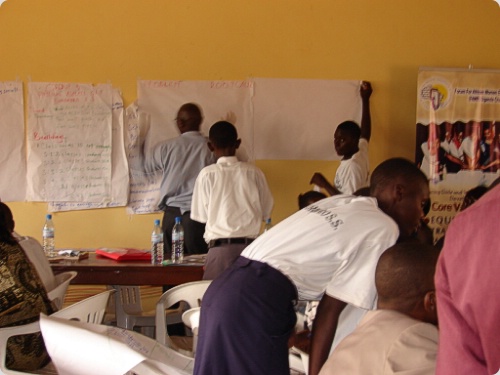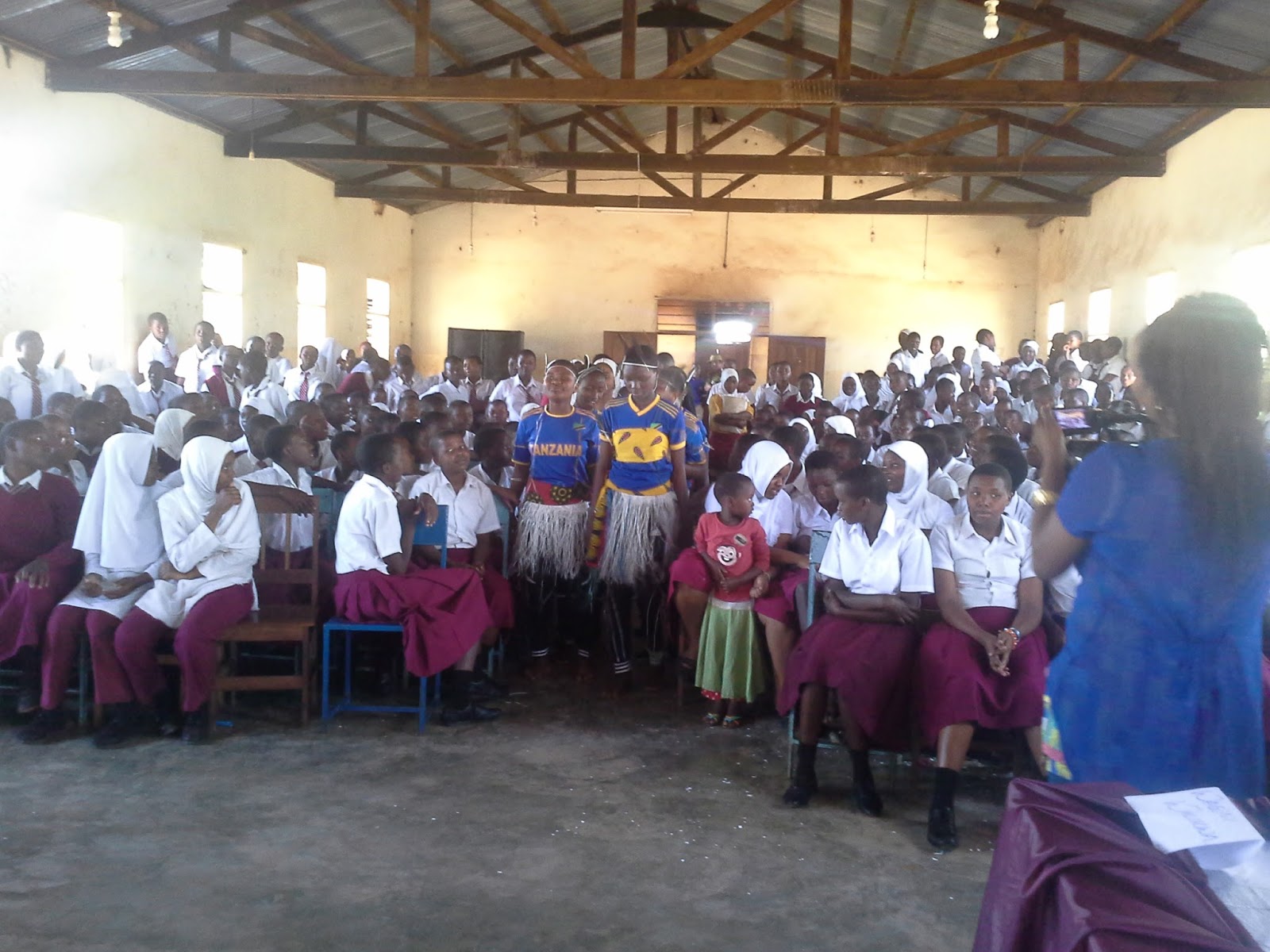Established 2006
- 88 female students
- 75 male students
- 1 female teacher
- 4 male teachers
2009
- 112 female students
- 94 male students
- 1 female teacher
- 5 male teachers
Challenges
- Poverty
- Rural community
- Traditional practices
COE components
- Bursaries for underprivileged students
- Tuseme youth empowerment programme
Outcomes since creation
- 62.50% improvement in performance in national exams
- 75% improvement in performance in end-of-year school exams
- 68.75% improvement in academic performance throughout the year
- 50% improvement in enrolment rates for girls
- 98% improvement in retention rates for girls
- 65.25% improvement in completion rates for girls
- 65.65%% improvement in transition rates to next level of education for girls
- 100% reduction in schoolgirl pregnancy rates
- 100% reduction in sexual harassment
- 60% of girls in school committees and other leadership roles
Girls are empowered to:
- Be self-confident
- Discuss their problems with their teachers
- Convince their parents to let them attend school
Boys are empowered to:
- Exchange ideas with girls
- Work in groups with girls
Girls and boys are empowered to:
- Have improved interaction and discussion
“When I was 11 years old, one of my school teachers asked my father to keep me for him. My father said yes. Our family is very big – seven girls and five boys. I am the only girl who has been sent to school because I am the eldest girl. My father said it’s only if I do well in school that my sisters will be able to go to school. After the vision workshop to turn our school into a gender-responsive school I was one of those chosen to receive a bursary. I told my father that if my teacher wants to marry me, I will kill myself. But the teacher also participated in the workshop. He listened to what was said and became ashamed so he dropped the idea of marriage. Now that I have the bursary – fees, uniform, petrol lamp, petrol, etc. – my father has sent my sisters to school too. With the bursary, I feel as if I am the one supporting myself.”
Marthe Koumabing, 15 years
“During the vision workshop at our school I was very happy. For me, foreigners were superior to Chadians. But when I saw the three female trainers, I promised myself that I would travel far away to train people too. My parents were there too. When we finished the workshop, I told them that I would continue going to school so that I could organise workshops like the female trainers who came all the way to Bayaka. Later on I was chosen to receive a bursary. I told my parents that thanks to school, they would have a lighter burden because FAWE was going to supply my exercise books, pay my fees, provide me with a lamp for studying, etc. The following year, one of our neighbour’s daughters used to follow me when I went to school and now she is enrolled. My parents are proud of me and talk about me to other parents. The bursary has opened my parents’ eyes, the eyes of my community and my own eyes.”
Ambassa Marieta, 13 years





Leave A Comment